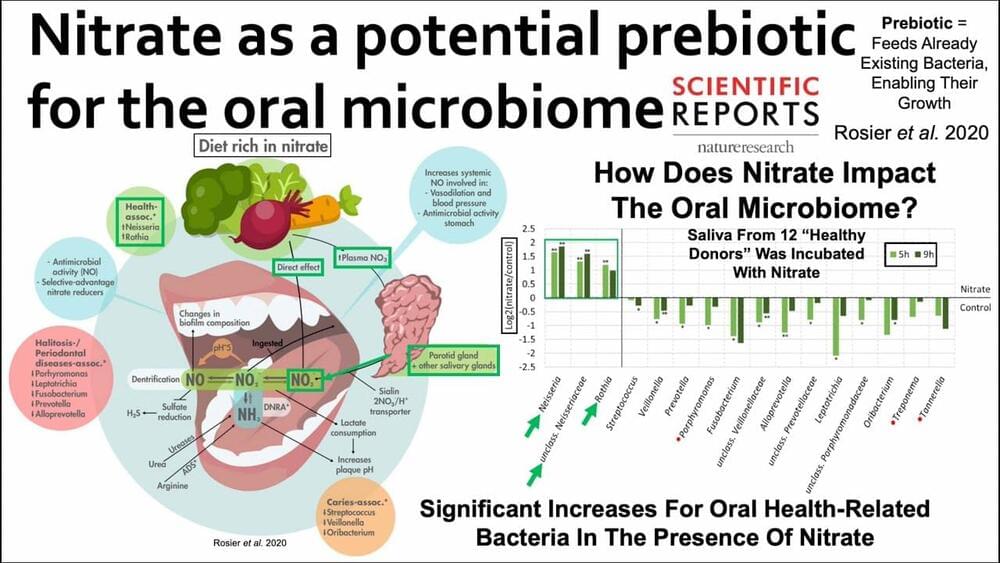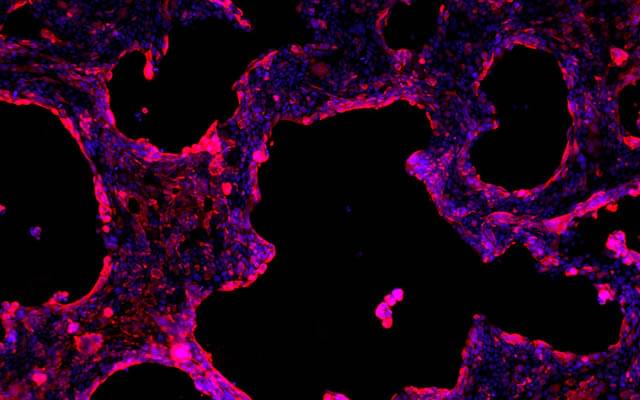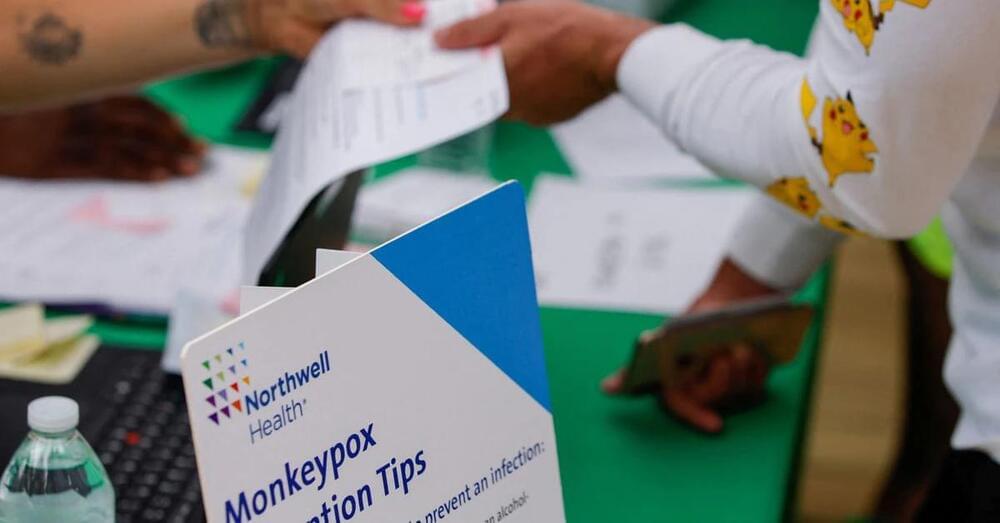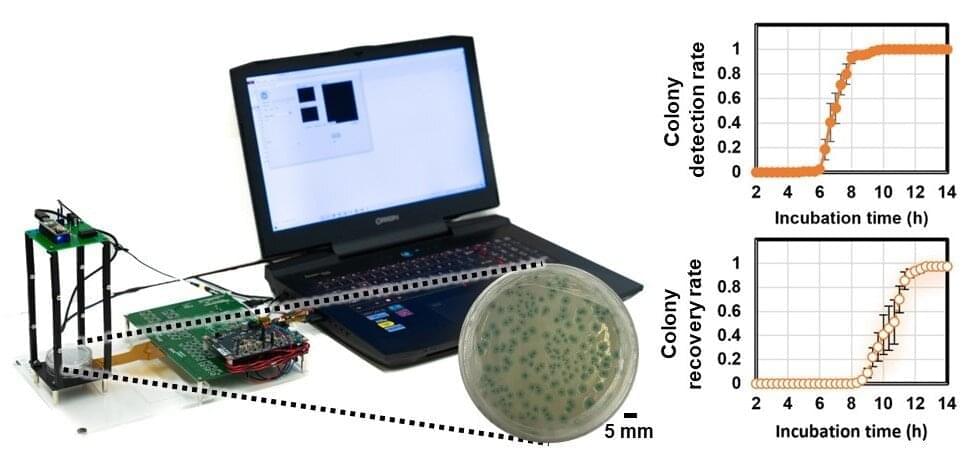Archive for the ‘health’ category: Page 147
Jul 23, 2022
UN health agency chief declares monkeypox a global emergency
Posted by Shubham Ghosh Roy in categories: biotech/medical, health
LONDON (AP) — The chief of the World Health Organization said the expanding monkeypox outbreak in more than 70 countries is an “extraordinary” situation that now qualifies as a global emergency, a declaration Saturday that could spur further investment in treating the once-rare disease and worsen the scramble for scarce vaccines.
WHO Director-General Tedros Adhanom Ghebreyesus made the decision to issue the declaration despite a lack of consensus among experts serving on the U.N. health agency’s emergency committee. It was the first time the chief of the U.N. health agency has taken such an action.
“We have an outbreak that has spread around the world rapidly through new modes of transmission about which we understand too little and which meets the criteria in the international health regulations,” Tedros said.
Jul 22, 2022
COVID-19 Rebound after Taking Paxlovid Likely Due to Insufficient Drug Exposure
Posted by Omuterema Akhahenda in categories: biotech/medical, health
Paxlovid is the leading oral medication for preventing severe cases of COVID-19 in high-risk individuals. However, symptoms returned in some patients after treatment was completed, prompting the Centers for Disease Control and Prevention (CDC) to issue a health advisory on this so-called “COVID-19 rebound.”
In a study published June 20, 2022 in Clinical Infectious Diseases, researchers at University of California San Diego School of Medicine evaluated one such patient and found their symptom relapse was not caused by the development of resistance to the drug or impaired immunity against the virus. Rather, the COVID-19 rebound appears to have been the result of insufficient exposure to the drug.
Jul 20, 2022
WHO reports 14,000 cases of monkeypox globally, five deaths in Africa
Posted by Quinn Sena in categories: health, sex
July 20 (Reuters) — The World Health Organization (WHO) has confirmed 14,000 cases of monkeypox worldwide, with five deaths reported in Africa, Director General Tedros Adhanom Ghebreyesus said on Wednesday.
Most of the cases reported thus far have been found in Europe, particularly among men who have sex with men, the WHO said, although all the deaths have occurred in Africa, the region where monkeypox outbreaks have historically been found.
On Thursday, the WHO will convene the second meeting of a committee that will decide whether the outbreak is a public health emergency of international concern (PHEIC), its highest level of alert.
Jul 20, 2022
Peanut Allergies — Why They Are a Thing and What to do About Them
Posted by Len Rosen in category: health
Peanut Allergies – Why They Are a Thing and What to do About Them.
Research from Australia produces remission in peanut allergy through targeting Th2 cells to create antibodies to turn off the immune response.
Jul 20, 2022
Elon Musk confirms a new Tesla product to solve heat and allergy woes
Posted by Gemechu Taye in categories: Elon Musk, health, sustainability, transportation
Jul 17, 2022
Biohacking the Oral Microbiome
Posted by Mike Lustgarten in categories: bioengineering, biotech/medical, health

Join us on Patreon!
https://www.patreon.com/MichaelLustgartenPhD
Bristle Discount Link:
ConquerAging15
https://www.bmq30trk.com/4FL3LK/GTSC3/
Jul 17, 2022
Deep learning accelerates the detection of live bacteria using thin-film transistor arrays
Posted by Saúl Morales Rodriguéz in categories: chemistry, economics, food, health, mobile phones, robotics/AI
Early detection and identification of pathogenic bacteria in food and water samples are essential to public health. Bacterial infections cause millions of deaths worldwide and bring a heavy economic burden, costing more than 4 billion dollars annually in the United States alone. Among pathogenic bacteria, Escherichia coli (E. coli) and other coliform bacteria are among the most common ones, and they indicate fecal contamination in food and water samples. The most conventional and frequently used method for detecting these bacteria involves culturing of the samples, which usually takes 24 hours for the final read-out and needs expert visual examination. Although some methods based on, for example, the amplification of nucleic acids, can reduce the detection time to a few hours, they cannot differentiate live and dead bacteria and present low sensitivity at low concentrations of bacteria. That is why the U.S. Environmental Protection Agency (EPA) approves no nucleic acid-based bacteria sensing method for screening water samples.
In an article recently published in ACS Photonics, a journal of the American Chemical Society (ACS), a team of scientists, led by Professor Aydogan Ozcan from the Electrical and Computer Engineering Department at the University of California, Los Angeles (UCLA), and co-workers have developed an AI-powered smart bacterial colony detection system using a thin-film transistor (TFT) array, which is a widely used technology in mobile phones and other displays.
The ultra-large imaging area of the TFT array (27 mm × 26 mm) manufactured by researchers at Japan Display Inc. enabled the system to rapidly capture the growth patterns of bacterial colonies without the need for scanning, which significantly simplified both the hardware and software design. This system achieved ~12-hour time savings compared to gold-standard culture-based methods approved by EPA. By analyzing the microscopic images captured by the TFT array as a function of time, the AI-based system could rapidly and automatically detect colony growth with a deep neural network. Following the detection of each colony, a second neural network is used to classify the bacteria species.
Jul 16, 2022
Dr Dana Merriman, PhD — UW-Oshkosh — Hibernation Biology & Applications In Human Health & Resilience
Posted by Ira S. Pastor in categories: biotech/medical, food, genetics, health, neuroscience

Hibernation Biology & Applications In Human Health & Resilience — Dr. Dana K. Merriman, Ph.D., Distinguished Professor Emerita of Biology; Director of the Squirrel Colony, UW-Oshkosh.
Dr. Dana K. Merriman Ph.D. (www.uwosh.edu/facstaff/merriman/VaughanHome), is Distinguished Professor Emerita of Biology, and Director of the Squirrel Colony, at University of Wisconsin Oshkosh, and Adjunct Professor of Ophthalmology & Visual Sciences, Medical College of Wisconsin.
Jul 16, 2022
Chip Maker Intel Has News That Customers and Companies Won’t Like
Posted by Genevieve Klien in categories: business, computing, economics, finance, health, policy, transportation
Intel ((INTC) — Get Intel Corporation Report ) is the bearer of additional bad news.
The chip giant will give an extra blow to consumers and businesses concerned about the health of the economy. For several weeks in fact, consumers have seen their bills for groceries and other products increase. The price of gasoline at the pump has jumped when they go to fill up their car.
And the situation is not getting any better since inflation remains at its highest for forty years, which should push the Federal Reserve to be even more aggressive in raising rates. However, economists have already warned that this monetary policy would plunge the economy into recession.















